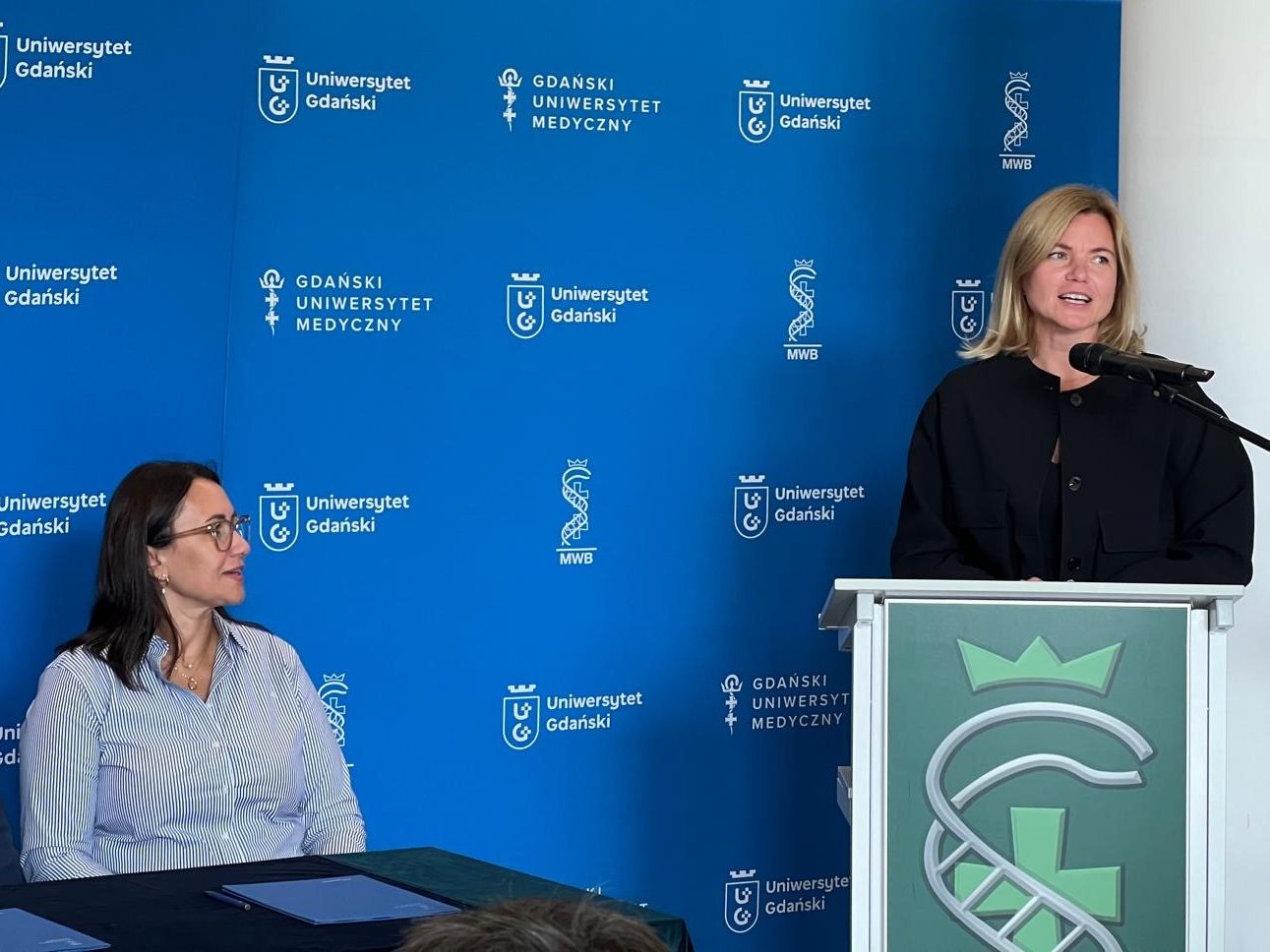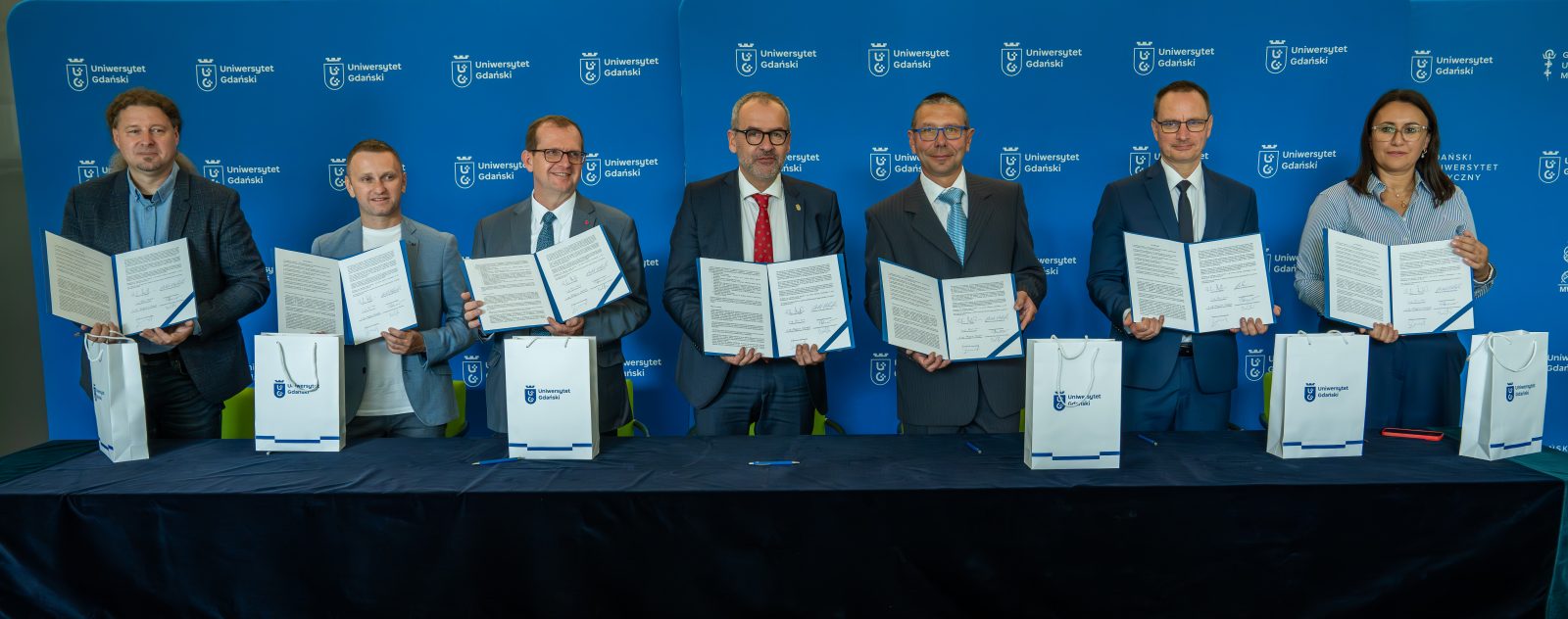
University of Wrocław in the Academic Network of Biotechnology
Representatives of six Polish academies have signed an agreement concerning the support of the development of biotechnology on Monday, 23 September 2024, at the University of Gdańsk. University of Wrocław was represented by the Vice-Rector for projects and international relations, prof. Patrycja Matusz.
The list of scientific disciplines established by the Act of 20 July 2018 on the Law of Higher Education and Science [Ustawa z dnia 20 lipca 2018 roku Prawo o szkolnictwie wyższym i nauce], the so-called Constitution for Science [Konstytucja dla nauki] did not include biotechnology, as a discipline in the field of exact and life sciences. It forced hundreds of biotechnology specialists to choose other disciplines represented at the universities and institutes where they worked. Biotechnology regained its place among scientific disciplines in the latter part of 2022 as a part of the regulation of the Minister of Education and Science. This resulted in scientists forced to choose other disciplines in 2018 being able to return to biotechnology.
Currently, this discipline is being developed at six Polish academies: University of Gdańsk, University of Rzeszów, Wrocław University of Environmental and Life Sciences, Poznań University of Life Sciences, Warsaw School of Technology, and University of Wrocław. These units are entitled to confer academic titles in biotechnology, thus contributing to educating specialists in this discipline. It is vital since biotechnology plays an important part in the field of environmental protection, agriculture, and healthcare through sewage treatment, production of ecological food, or the development of new types of therapy and diagnostics.
The dynamic development of the biotechnological sector contributes to the creation of new workplaces for highly qualified specialists. The collaboration between the public and private sectors and scientific institutions is crucial for an effective use of the potential of biotechnology. However, for these goals to be achieved, there need to be constant investments in scientific research, research infrastructure, and education.
Taking all facts into consideration, the above-mentioned academies have made an agreement to create a cross-regional initiative under the name of the Academic Network of Biotechnology whose aim is to actively support the development of biotechnology by raising the prestige of scientific units, educating staff in a modern way, and conducting scientific research in a common environment on the principles of complementarity and creation of scientific policies with the inclusion of the potential of affiliated units and specialisations in the sphere of the already pursued science.
Translated by Natalia Tkaczuk (student of English Studies at the University of Wrocław) as part of the translation practice.




